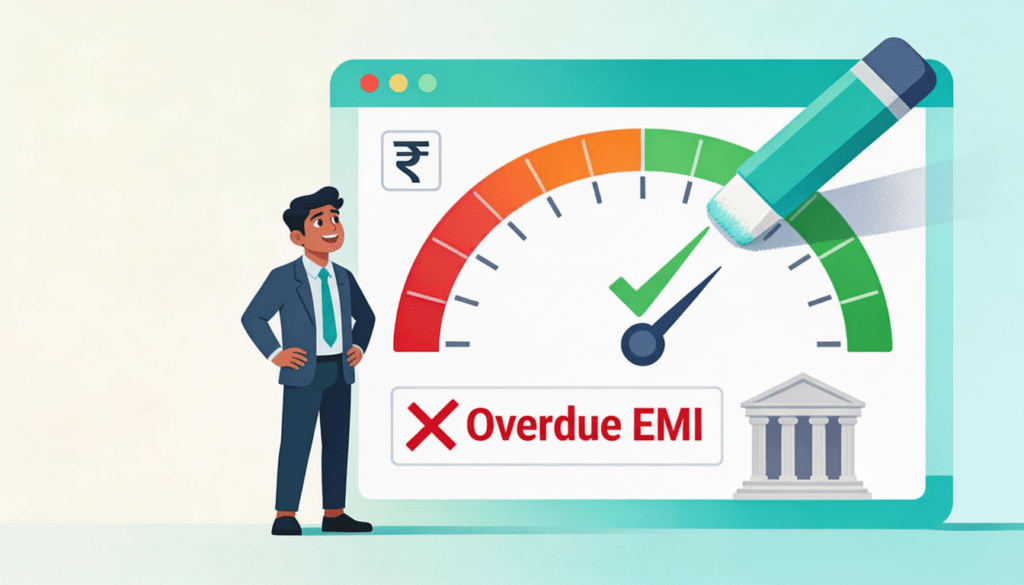
What’s New Supreme Court’s 2025 Ruling? Cheque Bounce Accused Get Probation, Not Punishment
Can a cheque bounce case end without jail time? The Supreme Court’s shocking 2025 ruling says yes! Discover how the Probation of Offenders Act transforms Section 138 NI Act cases, slashing India’s massive case backlog and saving traders from financial ruin. Uncover secrets to early settlements, court payment hacks, and avoiding penalties in this game-changing verdict. With over a million cases pending, this decision is a lifeline for entrepreneurs.
The Supreme Court of India delivered a landmark judgment on Thursday, September 25, 2025, affirming that accused persons convicted under Section 138 of the Negotiable Instruments Act, 1881—commonly known as cheque dishonour cases—are entitled to the benefit of the Probation of Offenders Act, 1958. This ruling marks a pivotal shift towards a rehabilitative approach in cheque bounce cases, emphasizing settlement and reducing punitive measures for offenders facing temporary financial hardships.
Value and Context
Cheque dishonour cases continue to be one of the most voluminous categories clogging Indian courts. With over a million cases pending across major metros like Delhi, Mumbai, and Kolkata, the judiciary’s focus has increasingly moved towards finding speedy resolutions that balance creditor rights with fairness to accused persons. The Supreme Court’s 2025 judgment allows benefits under the Probation of Offenders Act to cheque bounce convicts, fundamentally changing how these financial disputes are managed to encourage rehabilitation over strict punishment.
Key Takeaways
The Supreme Court’s 2025 ruling allows accused persons in cheque bounce cases under Section 138 NI Act to benefit from the Probation of Offenders Act, 1958. It promotes rehabilitation over punishment, recognizing financial distress as a common cause. Courts are directed to encourage early settlements and use online payment systems to expedite resolutions. The decision overrules a 2009 Kerala High Court precedent, reducing judicial backlog and ensuring fairer outcomes.
Why This Ruling Matters in 2025 India
India’s judicial system is burdened with over a million cheque dishonour cases clogging courts in cities like Delhi, Mumbai, and Kolkata. The Supreme Court’s decision on September 25, 2025, in Sanjabij Tari v. Kishore S. Borkar addresses this crisis by promoting faster resolutions and a rehabilitative approach. For the Indian business community, this ruling offers hope for balancing creditor rights with fairness to those facing financial distress.
The Scale of Cheque Bounce Litigation
- Delhi’s Burden: Over 650,000 pending cases as of September 2025.
- Mumbai and Kolkata: Similar backlogs, with cheque bounce cases forming nearly 50% of trial court pendency.
- Economic Impact: Delays in resolving these disputes disrupt small businesses, traders, and individuals reliant on timely payments.
Resolving a Legal Conflict
Historically, courts took a punitive stance on cheque bounce cases. A 2009 Kerala High Court ruling (M.V. Nalinakshan v. M. Rameshan) denied probation benefits, emphasizing punishment over reform. The 2025 Supreme Court judgment overrules this, aligning with a modern, rehabilitative justice framework.
Understanding Section 138 of the Negotiable Instruments Act
Section 138 of the Negotiable Instruments Act, 1881, addresses cheque dishonour due to insufficient funds or other reasons, making it a quasi-criminal offence. Introduced in 1988, it aims to ensure trust in negotiable instruments like cheques, vital for India’s commerce-driven economy.
Key Ingredients of Section 138
- Cheque Issuance: The cheque must be issued for a legally enforceable debt or liability.
- Dishonour: The cheque is returned unpaid due to insufficient funds or other reasons.
- Notice: The payee must issue a notice within 30 days of dishonour, demanding payment within 15 days.
- Non-Payment: Failure to pay within the notice period triggers the offence.
Why Cheque Bounce Cases Are Unique
Unlike typical criminal cases, cheque bounce disputes often stem from financial hardship rather than malicious intent. The Supreme Court’s ruling recognizes this, advocating for solutions that prioritize restitution over incarceration.
The Role of the Probation of Offenders Act, 1958
The Probation of Offenders Act, 1958, allows courts to release certain offenders on probation instead of imposing imprisonment, provided the offence doesn’t carry death or life imprisonment penalties. Its application to Section 138 cases marks a significant shift.
How the Act Applies to Cheque Bounce Cases
- Rehabilitation Focus: Recognizes that cheque dishonour often results from temporary financial setbacks, not criminal intent.
- Non-Custodial Option: Offenders can be released on good conduct probation, avoiding jail time.
- Judicial Efficiency: Reduces case pendency by encouraging settlements and probation over lengthy trials.
Supreme Court’s Rationale
In its 2025 ruling, the Court, led by Justices Manmohan and NV Anjaria, emphasized that cheque bounce cases are “civil sheep in a criminal wolf’s clothing.” This perspective aligns with earlier rulings like P. Mohanraj v. Shah Brothers Ispat Pvt Ltd. (2021), which highlighted the compensatory nature of Section 138 proceedings.
Key Highlights of the Supreme Court’s 2025 Judgment
The Supreme Court’s decision in Sanjabij Tari v. Kishore S. Borkar (2025 INSC 1158) provides clear directives for handling cheque bounce cases.
What the Court Held
- Probation Eligibility: Accused persons convicted under Section 138 are eligible for benefits under the Probation of Offenders Act, 1958.
- Overruling Precedent: The 2009 Kerala High Court decision denying probation was set aside.
- Compounding Encouraged: Courts must promote settlements under Section 147 of the NI Act at any stage, including post-conviction.
Guidelines for Compounding and Payment
- Early Settlement: No penalties if the accused pays the cheque amount before defence evidence is recorded.
- Later Stages: Courts may impose 5–20% of the cheque amount as costs if payment occurs post-evidence or during appeals.
- Excess Demands: If complainants demand more than the cheque amount, courts can suggest a guilty plea, enabling probation benefits under Cr.P.C. or BNSS provisions.
Modernizing Court Processes
The Court mandated innovative measures to expedite resolutions:
- Online Payment Systems: Courts must implement QR codes or UPI links for direct payments.
- Summons Reform: No pre-cognizance summons required under Section 223 of BNSS, reducing delays.
Implications for Indian Litigants
This ruling transforms the approach to cheque bounce disputes, offering relief to accused persons and faster recovery for complainants.
Benefits for Accused Persons
- Avoiding Imprisonment: Probation offers a chance to avoid jail by demonstrating good conduct.
- Financial Relief: Early settlement without penalties reduces financial strain.
- Fairness in Hardship Cases: Acknowledges genuine financial difficulties, common among small traders and entrepreneurs.
Advantages for Complainants
- Quicker Recovery: Compounding allows faster recovery of dues without prolonged trials.
- Court-Supported Payments: Dedicated online payment systems streamline settlements.
- Balanced Justice: Courts can intervene if complainants demand excessive amounts, ensuring fairness.
How to Navigate Cheque Bounce Cases Post-2025 Ruling
For those involved in Section 138 cases, understanding the new framework is crucial. Here’s a step-by-step guide.
For Accused Persons
- Initiate Early Settlement: Offer to pay the cheque amount before evidence recording to avoid penalties.
- Request Probation: Highlight financial hardship and request probation benefits under the 1958 Act.
- Cooperate with Courts: Provide accurate contact details and attend hearings to demonstrate sincerity.
- Consult Legal Experts: Engage a lawyer familiar with NI Act proceedings to navigate probation options.
For Complainants
- Encourage Compounding: Accept reasonable settlements to recover dues quickly.
- Use Court Payment Systems: Leverage QR codes or UPI links for secure, direct payments.
- Ensure Proper Summons: Serve notices via electronic means or dasti to avoid procedural delays.
- Seek Legal Advice: Consult advocates to ensure compliance with the latest guidelines.
Pro Tips for Trial Courts and Magistrates
To implement the Supreme Court’s vision, courts must adopt proactive measures:
- Structured Questionnaires: Use standardized forms to assess factual admissions early.
- Promote Mediation: Refer cases to Lok Adalats or mediation for faster resolutions.
- Track Case Progress: Maintain dashboards to monitor pendency and ensure timely disposal.
- Evening Courts: Set realistic pecuniary limits to handle high volumes efficiently.
Common Mistakes to Avoid in Cheque Bounce Cases
Avoid these pitfalls to ensure smoother case resolution:
- Delaying Payment: Postponing settlement increases costs and risks imprisonment.
- Inaccurate Contact Details: Failure to provide correct information delays summons and trials.
- Ignoring Compromise Opportunities: Refusing early settlement prolongs litigation unnecessarily.
- Improper Trial Conversion: Courts converting summary trials to summons trials without justification slows justice delivery.
Addressing Judicial Backlog
The ruling tackles India’s massive cheque bounce case pendency:
- Delhi Courts: Nearly 50% of trial court cases involve Section 138.
- National Impact: Over a million cases pending nationwide, straining judicial resources.
- Solution-Oriented Approach: Probation and compounding reduce trial durations, easing court burdens.
Legal Evolution: From Punishment to Rehabilitation
This judgment builds on prior Supreme Court rulings:
- Damodar S. Prabhu (2010): Established compounding guidelines with tiered costs.
- P. Mohanraj (2021): Clarified the quasi-criminal nature of Section 138 offences.
- 2025 Ruling: Expands rehabilitative options, aligning with global trends in restorative justice.
Challenges and Future Outlook
While the ruling is progressive, challenges remain:
- Implementation Gaps: Courts need infrastructure for online payment systems.
- Awareness: Litigants must be educated about probation and compounding options.
- Judicial Training: Magistrates require training to apply the new guidelines consistently.
Future amendments to the NI Act could further clarify compounding procedures, ensuring fairness for both parties.
Final Thought and Call to Action
The Supreme Court’s 2025 ruling reshapes the landscape of cheque dishonour litigation in India by emphasizing rehabilitation and speedy resolution. Parties involved in these cases should embrace early settlement options and seek court intervention for probation benefits where applicable.
For complainants, understanding these legal shifts can help recover dues without prolonged litigation. For accused persons, this ruling offers hope and an opportunity to avoid harsh punitive measures by cooperating with courts and adhering to legal guidelines.
Stay informed and consult legal professionals to ensure cases are handled with full knowledge of the current legal framework and enjoy the benefits of this progressive judicial approach.
































